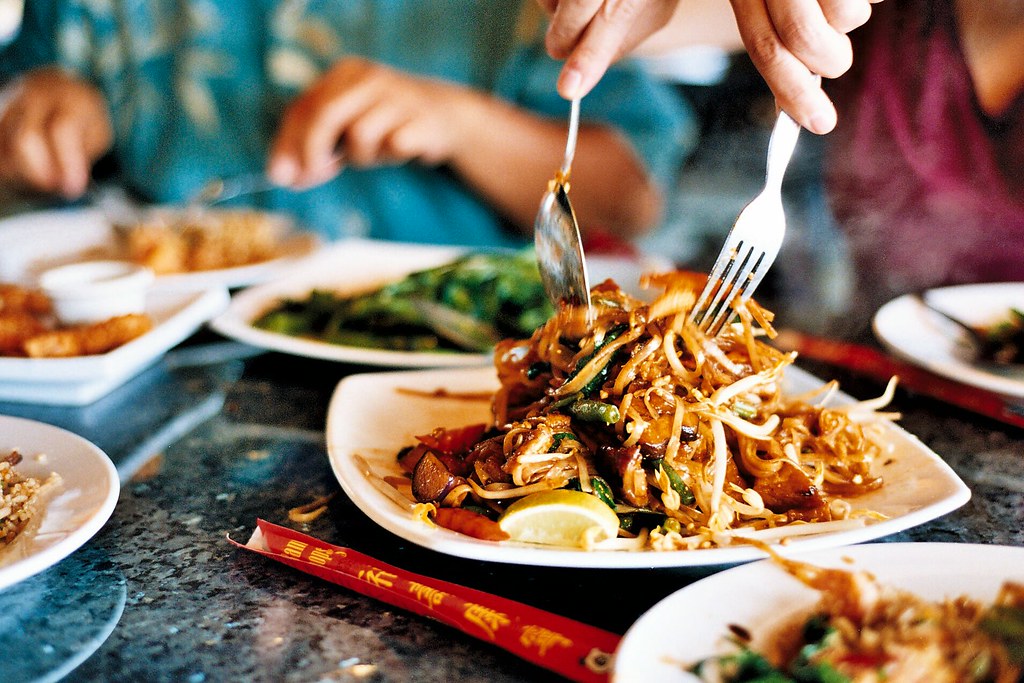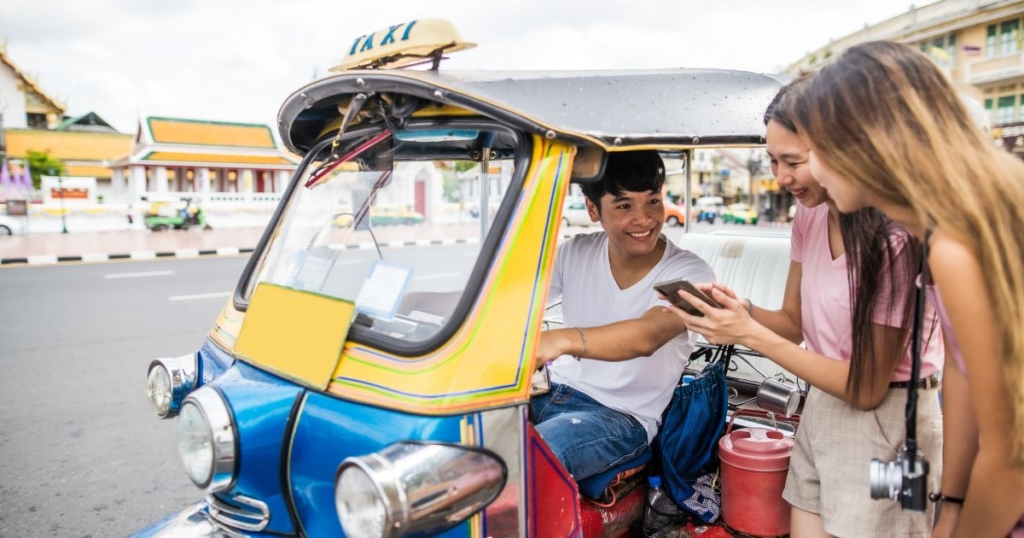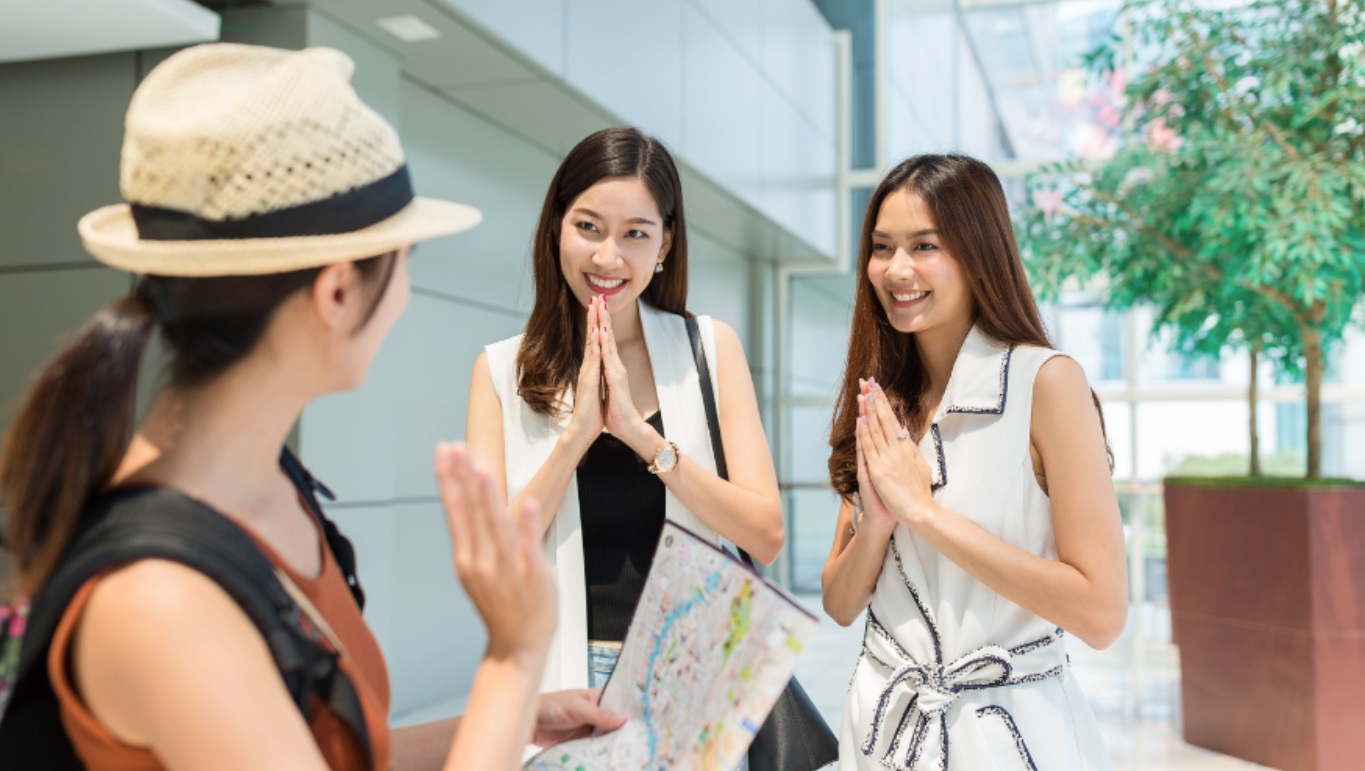Thailand is renowned for its warm hospitality and friendly people, and nowhere is this more evident than in Phuket, one of the country’s most popular tourist destinations. The Thai people are known for their welcoming nature, and they go out of their way to make visitors feel at home. While many Thais in tourist areas speak and understand English, it is considered polite and respectful to make an effort to speak in their native language.
Learning basic Thai phrases not only shows respect for local customs but also helps in making everyday interactions smoother. Whether it’s a casual conversation or expressing important needs like food allergies, having a few key phrases at hand can greatly enhance any trip to Thailand.
A Brief Overview of the Thai Language
The Thai language is unique and distinct, belonging to the Tai-Kadai language family. It has been spoken for centuries, with its written form dating back to the 13th century. One of the most important things to note about Thai is that it is a tonal language. The meaning of a word can change based on the tone in which it is spoken.
There are five tones in Thai: low, mid, high, rising, and falling. This makes the language quite different from Western languages, where tone typically doesn’t change a word’s meaning. Additionally, Thai has its own alphabet, which may look unfamiliar to visitors. However, learning a few simple, phonetically spelled phrases can go a long way in breaking down language barriers.
Commonly Used Phrases for Everyday Conversation
When visiting Thailand, even a basic grasp of everyday phrases can help travelers make a positive impression and engage in friendly exchanges with locals. Here are some of the most useful phrases:
- Sawasdee (Hello / Goodbye): Men say “Sawasdee khrap,” while women say “Sawasdee kha.”
- Khob khun (Thank you): Always appreciated after receiving help or service.
- Sabai dee mai? (How are you?): A friendly greeting that shows interest in the other person’s well-being.
- Sabai dee (I’m fine): A simple response to the question “How are you?”
- Kor toht (Sorry / Excuse me): Use this to apologize or to get someone’s attention politely.
- Mai bpen rai (No worries / It’s okay): A common phrase in Thailand’s laid-back culture.
These phrases can help start conversations and allow for more meaningful interactions with locals, who will appreciate the effort to speak their language.
Food-Related Phrases

Thailand is a paradise for food lovers, but if you have dietary restrictions or preferences, knowing a few phrases can ensure a more enjoyable dining experience. Here are some key food-related expressions:
- Aroi (Delicious): A compliment to the chef or food vendor.
- Mai phet (Not spicy): Essential for those who prefer mild food, as many Thai dishes can be quite spicy.
- Phet nit noi (A little spicy): If you like a bit of heat, but not too much.
- Chan pben jeh (I am vegetarian): Useful for vegetarians or vegans.
- Mai sai nam plaa (No fish sauce): For those avoiding fish or seafood in their meals.
- Mai ao gung (No shrimp): Helpful for those with a shrimp allergy.
Having these phrases handy can help travelers communicate their preferences and ensure a pleasant culinary experience.
Phrases for Asking and Giving Directions
Getting around Thailand, whether on foot, by car, or public transportation, is made easier with a few basic phrases for asking and giving directions. Here are some useful expressions:
- Bpai tee nai? (Where are you going?): A simple question to ask a taxi driver or when someone is heading somewhere.
- Chun bpai… (I’m going to…): Use this when telling someone your destination.
- Yoo tee nai? (Where is it?): Ask this when trying to locate a place.
- Glai (Far) / Gao (Near): Handy when asking about the distance to your destination.
- Leo sai (Turn left) / Leo kwa (Turn right): Directions for navigating around town.
These phrases are particularly helpful when exploring unfamiliar areas, allowing travelers to communicate with locals and get to their desired locations efficiently.
Useful Phrases for Shopping
Thailand offers plenty of shopping opportunities, from vibrant local markets to high-end malls. Here are some useful phrases to help with shopping:
- Tao rai? (How much?): The most important phrase when asking about the price of something.
- Lot dai mai? (Can you give me a discount?): For those who enjoy bargaining in the local markets.
- Paeng bpai (Too expensive): A polite way to express that the price is too high.
- Mai ow (I don’t want it): To decline a purchase or offer.
Using these phrases can make the shopping experience more enjoyable, especially in local markets where bargaining is common.
Practical Phrases for Other Situations

In addition to conversations, food, and directions, these practical phrases will be useful in various situations:
- Hong nam yoo tee nai? (Where is the bathroom?): An essential question for anyone in a foreign country.
- Pom mai kao jai (I don’t understand): Men use “pom,” while women use “chan.”
- Chuay dai mai? (Can you help me?): A polite way to ask for assistance.
- Pom ja maa eek (I will come back again): Use this when leaving a place with the intention to return.
Enhancing the Experience at a Thailand Luxury Villa
Staying at a luxury villa in Thailand adds another layer of comfort and enjoyment to any trip. The personalized service offered in such accommodations makes the experience truly exceptional, and learning a few Thai phrases can enhance the interaction with staff, making the stay more enriching and personalized.
Related article: Top Destinations for Luxury Villas in Thailand
Tips for Speaking Thai Politely
Politeness is key in Thai culture, and there are a few important things to remember when speaking the language. Men should always end their sentences with “khrap,” and women should use “kha.” These words add respect and politeness to any conversation.
Additionally, it’s important to smile and maintain a gentle tone of voice when speaking Thai. The traditional Thai greeting, the “wai,” where the palms are pressed together with a slight bow, is also a sign of respect. Avoid pointing at people or objects, as this can be considered rude.
Conclusion
In summary, learning basic Thai phrases not only facilitates communication but also shows respect for the local culture, enhancing the overall travel experience. Whether shopping, dining, or asking for directions, a little effort goes a long way in Thailand. With a few key phrases, travelers can fully immerse themselves in the warmth and hospitality of this beautiful country.
–
Featured Image by shelter.global




